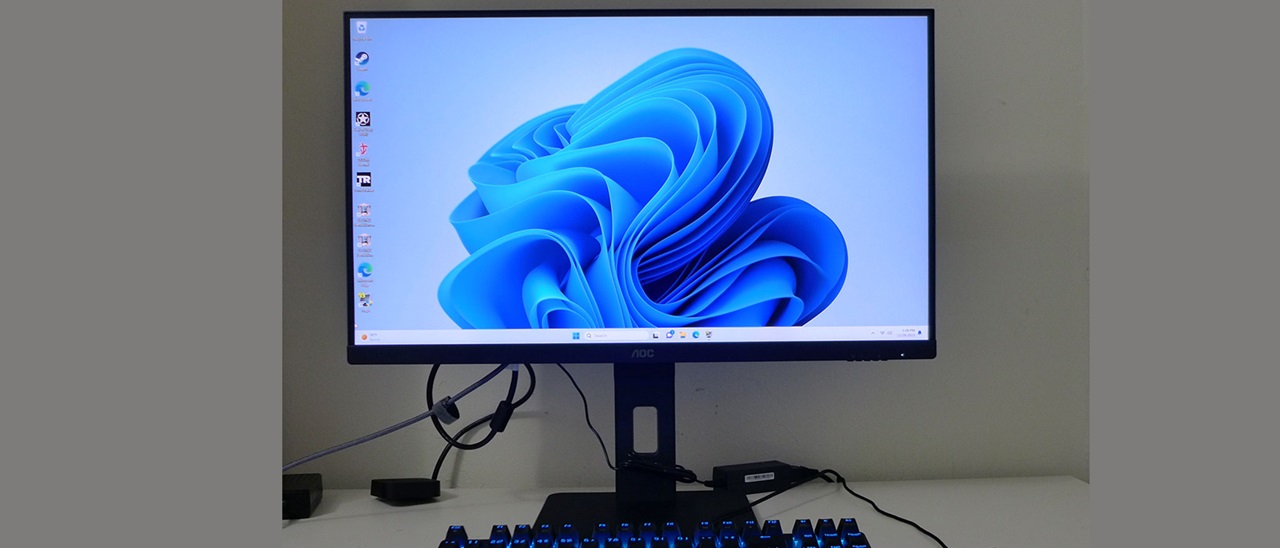Why you can trust Tom's Hardware
The 27G15 looks just fair out of the box in its Standard picture mode. But a few easy adjustments take it to a much higher level of image quality.
Grayscale and Gamma Tracking
Our grayscale and gamma tests use Calman calibration software from Portrait Displays. We describe our grayscale and gamma tests in detail here.
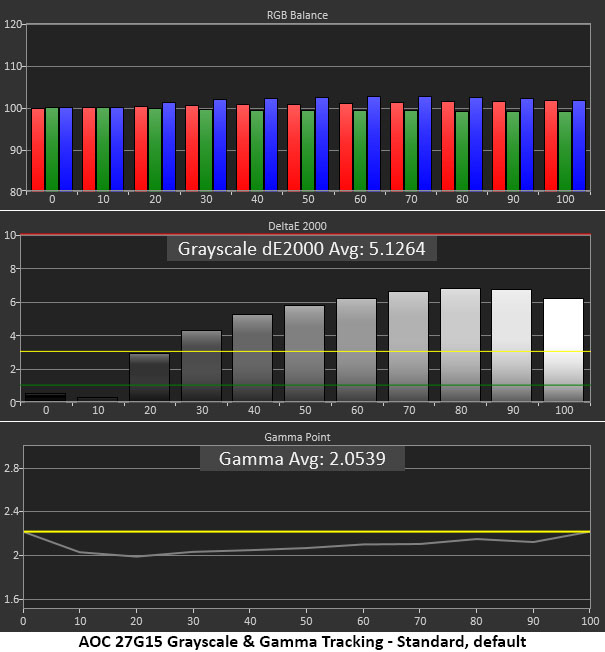
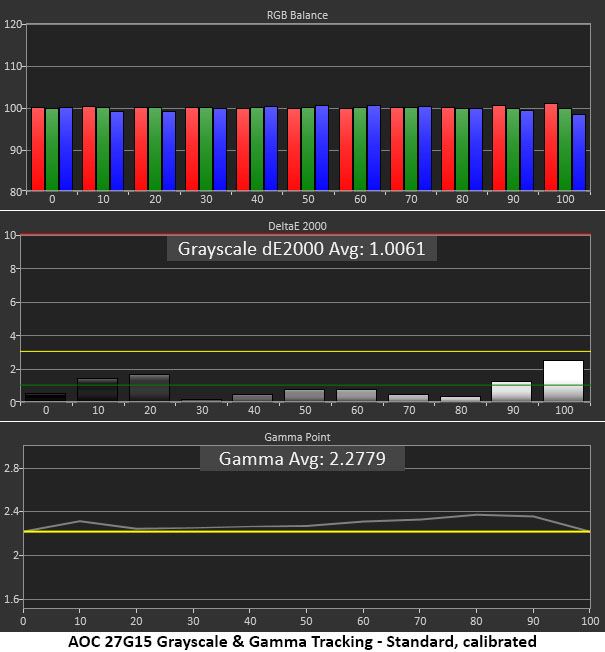
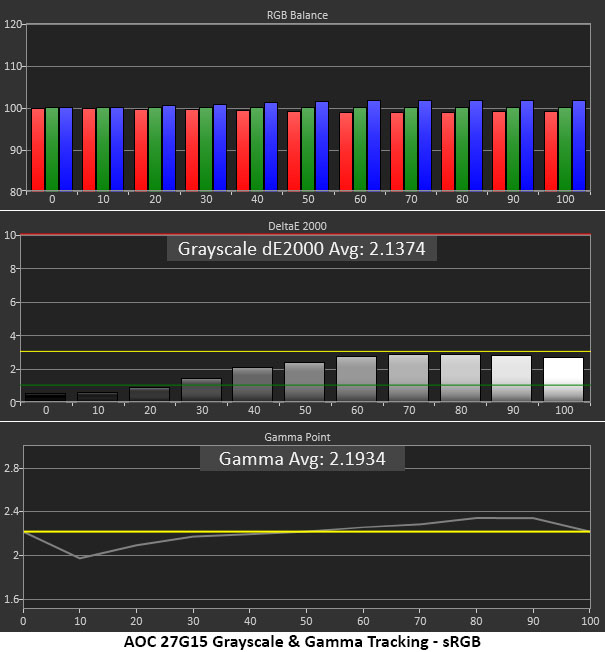
This is the 27G15’s Standard picture mode, warm color temp, gamma 1. It is a bit cool in tone, with visible errors from 30 to 100% brightness. Gamma is too light, which washes out the image and makes it look flat.
You can get most of the way there by simply changing gamma to 3 and selecting the user color temp. I went one step further and raised the blue slider one click. Grayscale tracking is now without visual error and gamma is improved. It’s a bit darker than the 2.2 standard, but in my experience, a tad dark is better than a tad light. Color saturation is better as well.
If you select the sRGB gamut, there are no color temp options, but as you can see, they aren’t needed if 6500K is your goal. There are no visible grayscale errors here, but gamma is a little skewed. The dip at 10% means shadows will be a little more gray than black. And highlights in the 80-90% range will be slightly muted. This is still acceptable for color-critical work, since one would use a $140 monitor for such tasks.
Comparisons
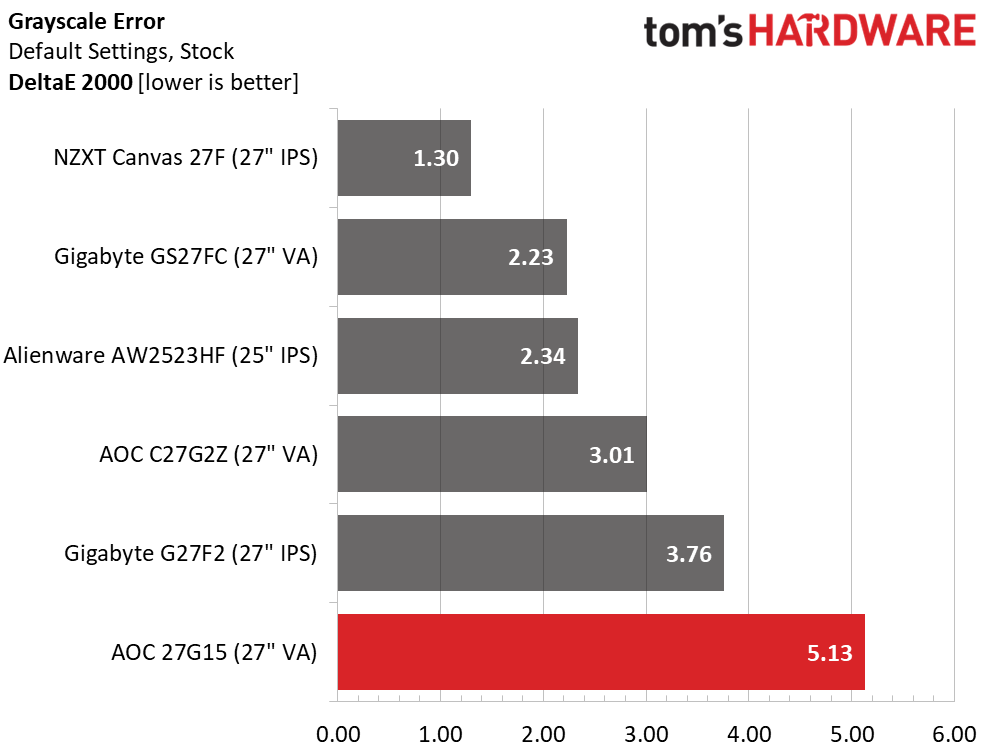
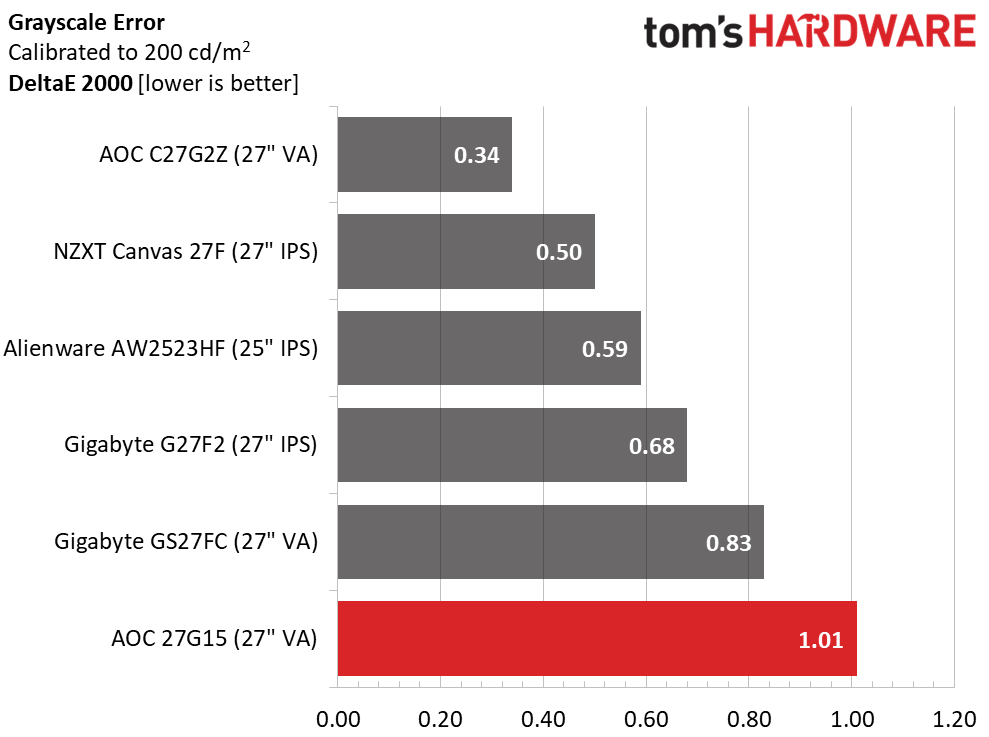
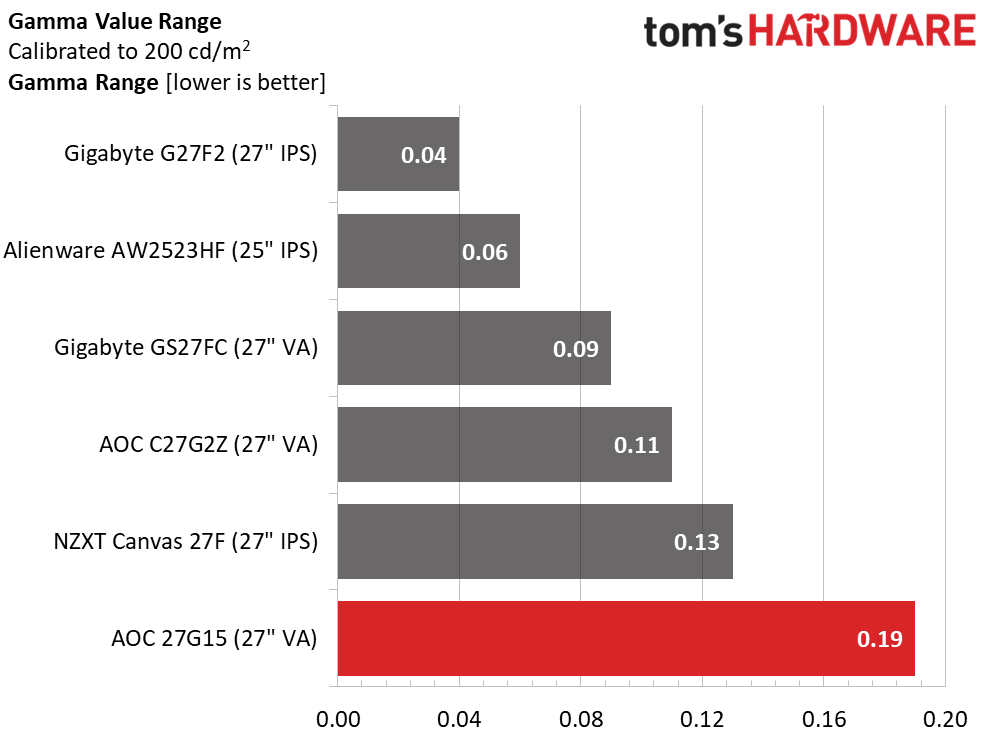
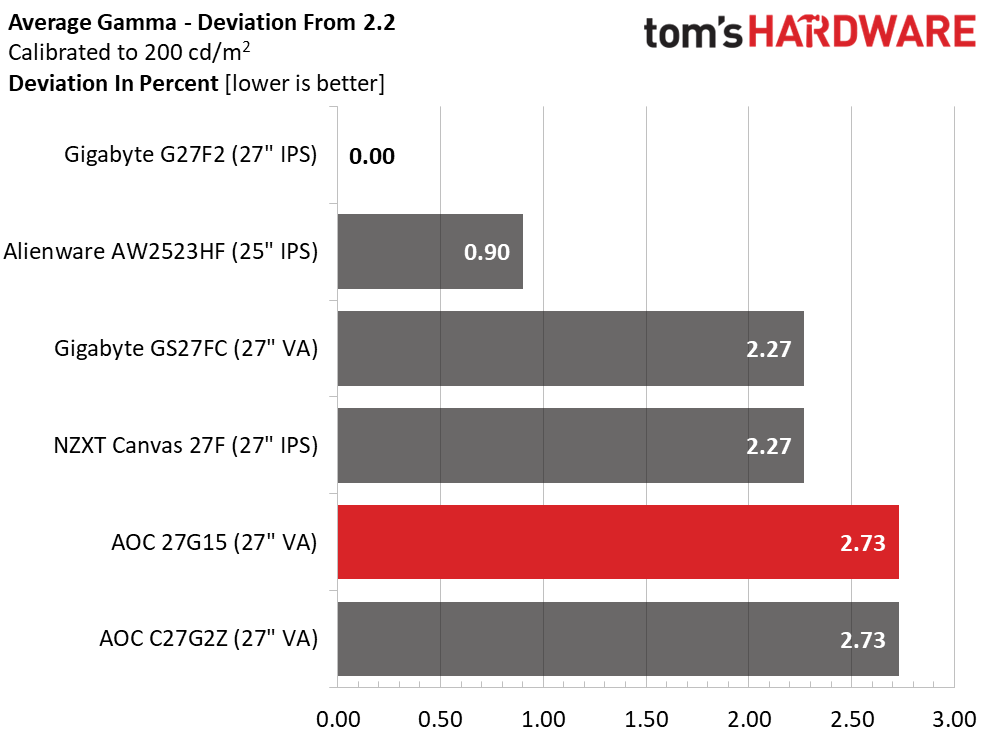
A default grayscale error of 5.13dE means the 27G15 needs some tweaking. Changing gamma to 3 and selecting the User color temp reduces that number to 2.05dE and further adjustment of the blue slider takes that down to 1.01dE. Though it’s last among these screens, it is still an excellent result. All the monitors perform very well in this test.
The 27G15’s gamma isn’t as ruler-straight as the others, but 0.19 is still a reasonably tight value range and the average level of 2.28 is only 2.73% off the mark. For $140, I have no complaints.
Get Tom's Hardware's best news and in-depth reviews, straight to your inbox.
Color Gamut Accuracy
Our color gamut and volume testing use Portrait Displays’ Calman software. For details on our color gamut testing and volume calculations, click here.
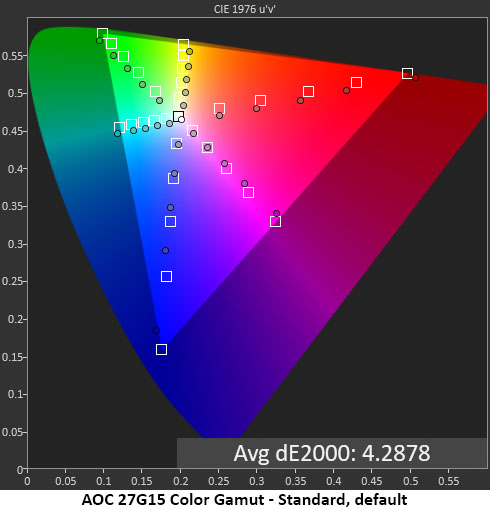
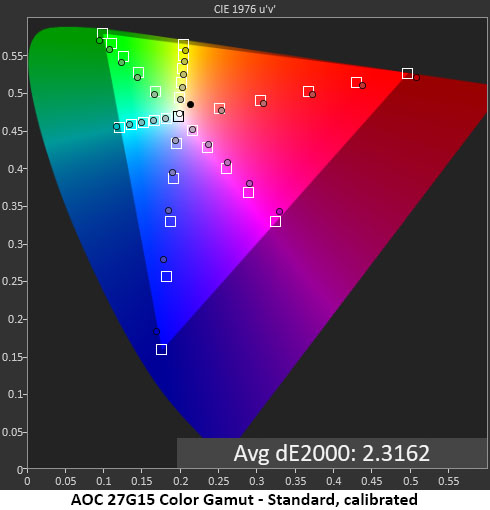
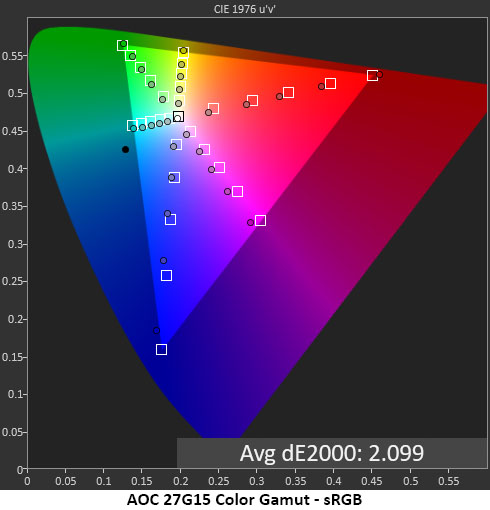
The 27G15’s blue grayscale tracking pulls cyan and yellow off their hue targets. It also under-saturates the red, green and blue primaries. With minor adjustments, these issues are eliminated. The average error has been lowered by 2dE, a significant gain considering how little was required from the OSD settings.
The sRGB gamut is accurate, too, but red and blue are a tad under-saturated. The errors are small enough not to be obvious in actual content. This mode is suitable for color grading or purists who want the correct gamut for SDR material.
Comparisons
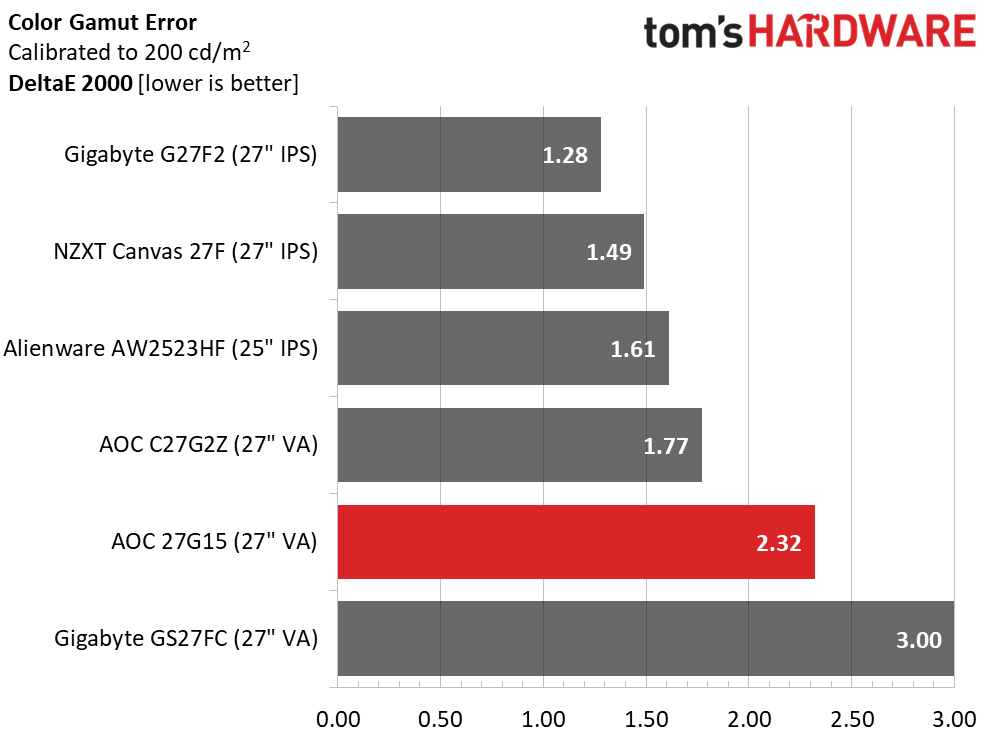
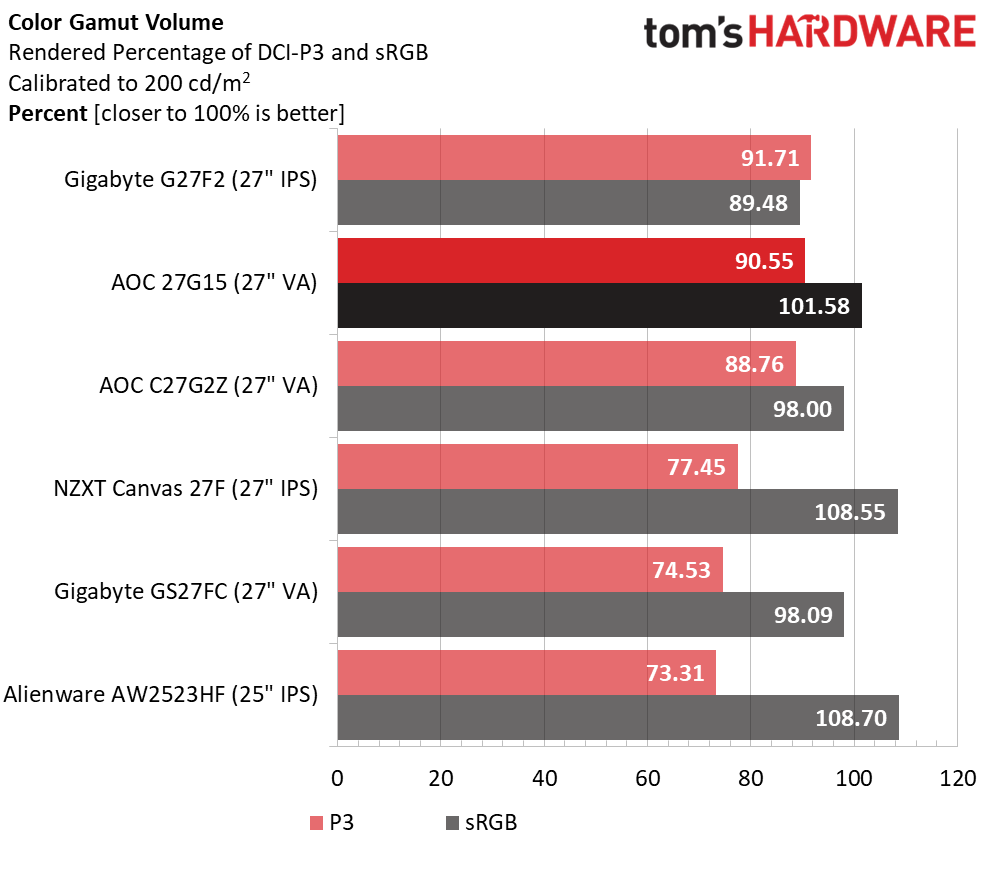
It is a solid group of displays when the fifth-place finisher has a 2.32dE color error. The 27G15 performs exceptionally well in this test. It is very colorful with natural tones and the look of a more expensive monitor.
The 27G15 nearly takes the gamut volume test, which is very impressive. Now that one can buy a wide gamut screen for $140, it’s obvious that most users want all the color they can get. Over 90% coverage of DCI-P3 is slightly above average. Only the G27F2 has a touch more volume. And you’ll be hard-pressed to see a difference in a side-by-side comparison. The 27G15 delivers a lot for the money. And its near-ideal 101.58% coverage of sRGB is a nice bonus.
Test Takeaway: The 27G15’s color accuracy and performance are on par with many more expensive screens. It has more color volume than nearly any other budget monitor I’ve tested, and accuracy is higher than expected. Aside from minor gamma anomalies, it pretty much aced my benchmarks. There isn’t anything else at this price that looks as good.
MORE: Best Gaming Monitors
MORE: How We Test PC Monitors
MORE: How to Buy a PC Monitor
MORE: How to Choose the Best HDR Monitor
Current page: Grayscale, Gamma and Color
Prev Page Brightness and Contrast Next Page HDR Performance
Christian Eberle is a Contributing Editor for Tom's Hardware US. He's a veteran reviewer of A/V equipment, specializing in monitors. Christian began his obsession with tech when he built his first PC in 1991, a 286 running DOS 3.0 at a blazing 12MHz. In 2006, he undertook training from the Imaging Science Foundation in video calibration and testing and thus started a passion for precise imaging that persists to this day. He is also a professional musician with a degree from the New England Conservatory as a classical bassoonist which he used to good effect as a performer with the West Point Army Band from 1987 to 2013. He enjoys watching movies and listening to high-end audio in his custom-built home theater and can be seen riding trails near his home on a race-ready ICE VTX recumbent trike. Christian enjoys the endless summer in Florida where he lives with his wife and Chihuahua and plays with orchestras around the state.
